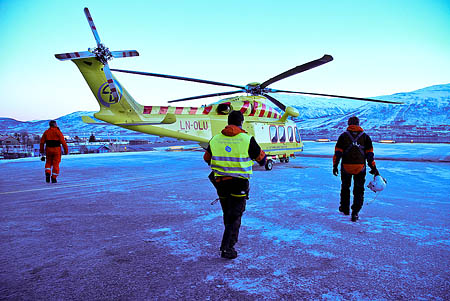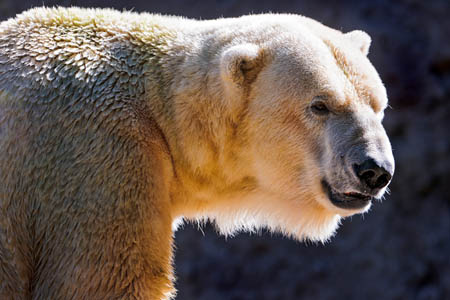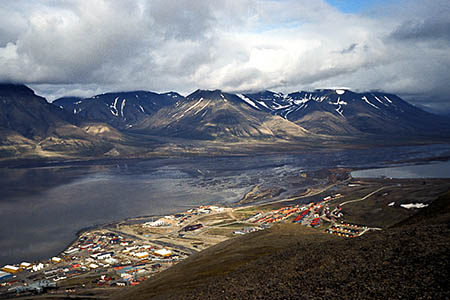A former High Court judge’s report into the death of a schoolboy when he was mauled by a polar bear on an Arctic expedition found safety equipment did not work and firearms training was inadequate.
Horatio Chapple, 17, died when a polar bear dragged him from his tent in a British Schools Exploring Society camp on Spitsbergen in 2011.
A tripwire warning system failed to operate and a leader tried unsuccessfully four times to shoot the animal. Michael Reid, who was 29 at the time, and the group’s science leader, was seriously injured himself by the bear, but managed to reload a rifle and kill the bear with a single shot.
Sir David Steel’s report said Mr Reid’s bravery probably saved other members of the group from more serious injury or death.
Andrew Ruck, who was 27, and designated mountain leader, and expedition members Patrick Flinders, 17, from Jersey, and Scott Bennell-Smith, from Cornwall, 16, were also injured when the bear attacked at 7.30am near Longyearbyen.
Sir David found that a trip-wire system erected round the tents had not detonated the flare that was meant to warn of a bear’s approach. BSES had not supplied enough stakes and other parts for the various teams who had flown out to Svalbard, a Norwegian Arctic archipelago.
The team, named the Chanzin Fire by the society, did not set up a ‘bear watch’ the night of the attack, which might have spotted the approach of the animal. Leaders did not believe a polar bear incursion was likely as they were a long distance from the shore.
Polar bears’ staple diet is seals, but they will attack humans, particularly if starving. A post-mortem examination of the bear that attacked Horatio found it was an elderly animal weighing only about 60 per cent of normal weight, and had painful bad teeth.
Each member of the party was not equipped with a flare, as recommended by the society, and the camp was set up in a circular pattern, which is not recommended as bears can feel trapped during an incursion into the camp.
Group members received only half-an-hour’s instruction in using the Mauser rifle, which as an unusual safety catch. When Mr Reid tried to fire four shots at the bear, the weapon simply ejected the bullets on to the ground. He eventually managed to shoot it with one of the rounds which he retrieved.
However, Sir David said even if the trip-wire system had worked, it would only have given a short extra warning time to the expedition group. Having party members on bear watch overnight also had the disadvantage of risking increased tiredness the following day.
After the bear was shot, team members raised the alarm using a satellite phone and the Norwegian rescuers arrived very quickly.
Sir David commended the leaders’ and group members’ courage and level-headedness in treating the injured expedition members before the rescue team arrived by helicopter.
The Norwegian police inquiry into the incident found there were no grounds for criminal charges.
Horatio’s parents requested that the publication of Sir David’s report be delayed until the first day of the inquest, which opened in Salisbury today.
In the report, Sir David detailed the attack: “The bear must have entered the perimeter of the campsite via a route leading through the north-western side of the trip-wire system.
“None of the mines, in particular, the mine on the central position of the northern perimeter, exploded.
“The stake to which it was attached was in due course found to be leaning over substantially with the cartridge on the ground.”
Sir David removed the names of the expedition members, giving them initials in his report.
He said: “The bear appears to have initially made its way to the tent containing E7, E3 and Horatio.
“It would appear that the bear must have ripped open the tent on Horatio’s side.
“It then dragged Horatio out, causing serious, indeed probably mortal wounds to his head.”
The rest of the expedition members were woken by the shouts of ‘bear’.
Sir David said: “Horatio appeared to try to sit up or even attempt to stand, whereupon the bear reared up and slammed into him. He fell to the ground. He was not seen to move again.”
BSES, now renamed British Exploring, said it had accepted Sir David’s recommendations.
Chairman Edward Watson said: “First and foremost, I would like to reiterate our deepest sympathy for Horatio’s family, our sorrow that such a tragedy occurred on one of our expeditions and our sincere regret at the death of a fine young man.
“Horatio epitomised everything a young explorer should be and will not be forgotten.
“I also want to pay tribute to the leaders and young explorers of Chanzin Fire. As highlighted by Sir David Steel in his report, all members of the group demonstrated great courage in the face of an attack that started while the camp was asleep.
“Regarding the recommendations in Sir David’s report, we have accepted and implemented them all.
“There were important lessons to be learned from this tragedy and, following a comprehensive strategic review, a process that began before the tragedy but in which Sir David’s report played an important part, we have made significant changes to the way the society operates, including some that go beyond what Sir David recommended.
“Among other things, we have drawn up a new standard operating procedure relating to protection against predatory and wild animals in polar regions.
“The SOP includes a mandatory bear watch in all camps – a stipulation which exceeds what is required by Norwegian law – and the use of a new alarm system, which British Exploring has helped develop.
“Sir David has since confirmed that the issues raised in his report have been fully addressed and has commended the society for putting in place a revised structure and operating manual ‘of the highest quality’.
“We hope and believe that Sir David’s report and the steps taken by the society in response to it will be of considerable benefit to anyone organising or taking part in expeditions to polar regions in the future.”
The inquest continues.
Sir David’s full report can be downloaded from the British Exploring website.



Parky
08 July 2014I've been on several expeditions to Greenland and Svalbard and can confirm that tripwires with blank cartridges are a very poor deterent. High winds can set them off and once you're in the tent with a sleeping bag around your head, you can hardly hear them. Noise will scare a bear however and from experience, a referee whistle with a penflare for each person can be very affective at a reasonable distance. In Greenland the best deterent of all is a dog team around the camp. They will see off a bear with no fear at all. Unfortunately there are no dog teams available for hire in Svalbard.
You can never make yourself truly safe and it should be accepted that a bear attack can happen at anytime. When that occurs then the only option is to kill the bear and everyone should be trained in using a bolt action rifle, not just the leaders. I'm afraid a sentimental or soft attitude to killing something often portrayed as cute and cuddly can be fatal.
The leader is to be congratulated for regaining his composure to kill the bear after re-loading with an ejected round. I suspect the safety catch had not been released on the first few attempts which would account for the rounds ejecting as rifle was re-cocked. The rifle used would have been a German mauser, one of thousands left in Norway after the German occupation. They are usually 100% reliable but who knows if this one was faulty in any way.
This was a terrible event but lets hope it doesn't put a compulsory end to BSES giving young people a chance to experience the high arctic and all it's beauty.
Vernon M Shein
18 May 2019This tragedy is the result of inexperience and poor training.
There is a belief held by many urban people that simply having a firearm will keep you safe from predators. Without good training, this is incorrect and borders on hubris.
The Mauser 98 rifle is an excellent controlled round firearm and the 8mm cartridge is a good choice for the application. However the 98 has a 3 position safety and unless the safety is in the Fire position it will not fire even with a cartridge in the chamber.
Those entrusted with the role of bear monitor in bear habitat must be well practiced with the firearm that will be on site.